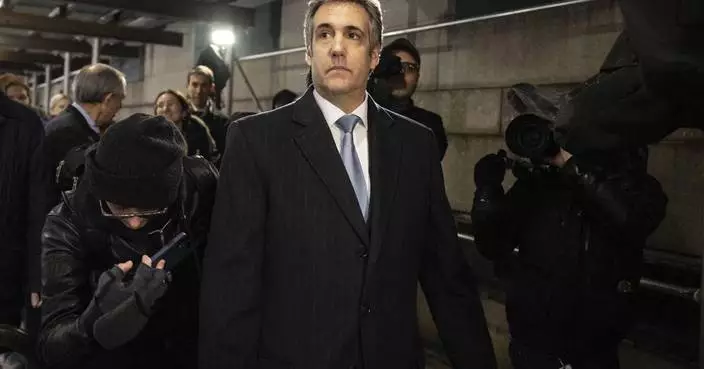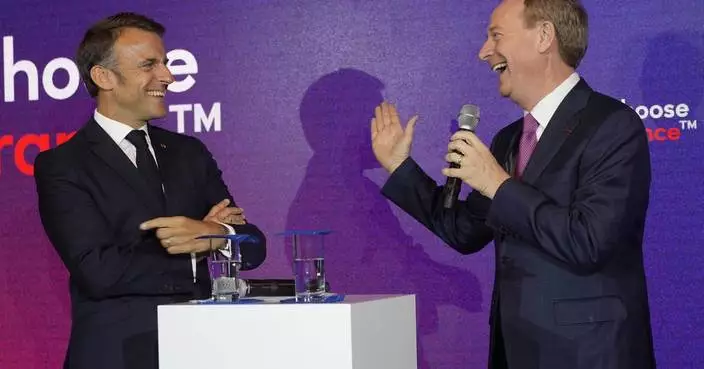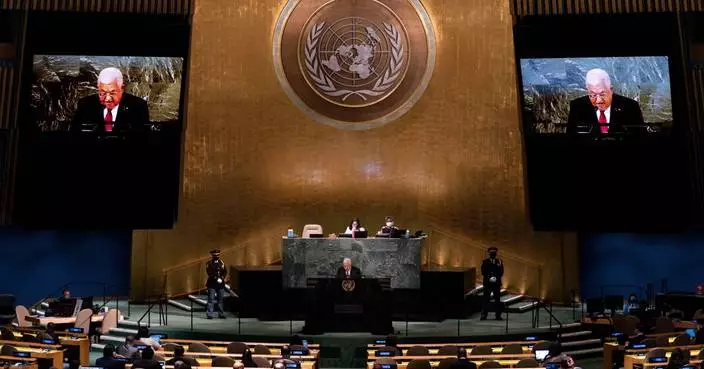Tesla CEO Elon Musk dismissed the idea that the company's new chairwoman can exert control over his behavior.
Robyn Denholm, an Australian telecommunications executive, was appointed chairwoman of Tesla's board last month, replacing Musk of as part of a securities fraud settlement with U.S. government regulators.
But Musk said "it's not realistic" to expect Denholm to watch over his actions because he remains the electric car company's largest shareholder.
"It's not realistic in the sense that I am the largest shareholder in the company," Musk said in an interview with CBS' "60 Minutes," broadcast Sunday evening, adding that a large percentage of shareholders support him and all he needs is about one-third of them.
"I can just call for a shareholder vote and get anything done that I want," he said.
Musk, who owns about 20 percent of Tesla, gave up the chairman role under a settlement with the Securities Exchange Commission, which had charged the CEO with misleading investors in August with a tweet that said he had "funding secured" for taking the company private.
The SEC settlement also required the company to vet Musk's tweets and other comments about the company before they are released to the public. Musk also shrugged off that provision, saying none of his tweets have been censored so far and the company does not review his posts to determine beforehand whether they could potentially affect the company's stock price.
"I guess we might make some mistakes. Who knows?" Musk said.
Musk said he does not respect the SEC, but when asked if he would obey the settlement, he said: "Because I respect the justice system."
After the interview was aired, Tesla said in a statement that the company is complying with the SEC settlement. The part that requires pre-approval of communications that could affect the stock price technically must be in place by Dec. 28, the company said.
The SEC declined to comment on Musk's interview.
Denholm's appointment in November drew a mixed response from corporate governance experts, who praised her financial expertise but questioned her ability to carve out an independent path for a board that has been dominated by Musk.
Denholm has been on Tesla's board for five years. She is the chief financial officer and strategy head at Telstra Corp. Ltd., Australia's largest telecommunications company, but will step down from that company after a six-month notice period and work at Tesla full-time.
Musk told "60 Minutes" interviewer Lesley Stahl that he had hand-picked Denholm.
The SEC settlement would allow Musk to return as chairman after three years, subject to shareholder approval. Musk said he would not be interested.
"I actually prefer to have no titles at all," Musk said.
Amid its CEO's erratic behavior, Tesla delivered on promises to accelerate production of its pivotal Model 3 sedan, progress seen as essential to the company's ability to repay $1.3 billion in debt due within the next six months.
The company also fulfilled a pledge to make money during the third quarter, and Musk has said he expects the company to remain profitable. He said Tesla would consider buying any plant that rival GM closes as part of a restructuring plan that could cost up to 14,000 jobs.
WASHINGTON (AP) — The Biden administration has told key lawmakers it would send more than $1 billion in additional arms and ammunition to Israel, three congressional aides said Tuesday. But it was not immediately known how soon the weapons would be delivered.
It's the first arms shipment to Israel to be revealed since the administration put another arms transfer, consisting of 3,500 bombs of up to 2,000 pounds each, on hold this month. The Biden administration, citing concern for civilian casualties in Gaza, has said it paused that bomb transfer to keep Israel from using those particular munitions in its offensive in the crowded southern Gaza city of Rafah.
The package disclosed Tuesday includes about $700 million for tank ammunition, $500 million in tactical vehicles and $60 million in mortar rounds, the congressional aides said. They spoke on condition of anonymity to discuss an arms transfer that has not yet been made public.
There was no immediate indication when the arms would be sent. Two congressional aides said the shipment is not part of the long-delayed foreign aid package that Congress passed and President Joe Biden signed last month. It wasn’t known if the shipment was the latest tranche from an existing arms sale or something new.
The Biden administration has come under criticism from both sides of the political spectrum over its military support for Israel's now seven-month-old war against Hamas in Gaza — at a time when Biden is battling for reelection against former President Donald Trump.
Some of Biden's fellow Democrats have pushed him to limit transfers of offensive weapons to Israel to pressure the U.S. ally to do more to protect Palestinian civilians. Protests on college campuses around the U.S. have driven home the message this spring.
Republican lawmakers have seized on the administration's pause on the bomb transfers, saying any lessening of U.S. support for Israel — its closest ally in the Middle East — weakens that country as it fights Hamas and other Iran-backed groups. In the House, they are planning to advance a bill this week to mandate the delivery of offensive weaponry for Israel.
Despite the onetime suspension of a bomb shipment, Biden and administration officials have made clear they will continue other weapons deliveries and overall military support to Israel, which is the largest recipient of U.S. military aid.
Biden will see to it that “Israel has all of the military means it needs to defend itself against all of its enemies, including Hamas,” national security spokesman John Kirby told reporters Monday. “For him, this is very straightforward: He’s going to continue to provide Israel with all of capabilities it needs, but he does not want certain categories of American weapons used in a particular type of operation in a particular place. And again, he has been clear and consistent with that.”
The Wall Street Journal first reported the plans for the $1 billion weapons package to Israel.
In response to House Republicans' plan to move forward with a bill to mandate the delivery of offensive weapons for Israel, the White House said Tuesday that Biden would veto the bill if it were to pass Congress.
The bill has practically no chance in the Democratic-controlled Senate. But House Democrats are somewhat divided on the issue, and roughly two dozen have signed onto a letter to the Biden administration saying they were “deeply concerned about the message” sent by pausing the bomb shipment.
One of the letter’s signers, New York Rep. Ritchie Torres, said he would likely vote for the bill, despite the White House’s opposition.
“I have a general rule of supporting pro-Israel legislation unless it includes a poison pill — like cuts to domestic policy,” he said.
In addition to the written veto threat, the White House has been in touch with various lawmakers and congressional aides about the legislation, according to an administration official.
“We strongly, strongly oppose attempts to constrain the President’s ability to deploy U.S. security assistance consistent with U.S. foreign policy and national security objectives,” White House press secretary Karine Jean-Pierre said this week, adding that the administration plans to spend “every last cent” appropriated by Congress in the national security supplemental package that was signed into law by Biden last month.
Associated Press writers Stephen Groves, Lisa Mascaro and Aamer Madhani contributed.

President Joe Biden arrives to speak in the Rose Garden of the White House in Washington, Tuesday, May 14, 2024, announcing plans to impose major new tariffs on electric vehicles, semiconductors, solar equipment and medical supplies imported from China. (AP Photo/Susan Walsh)

President Joe Biden speaks at the Asian Pacific American Institute for Congressional Studies' 30th annual gala, Tuesday, May 14, 2024, in Washington. (AP Photo/Alex Brandon)











